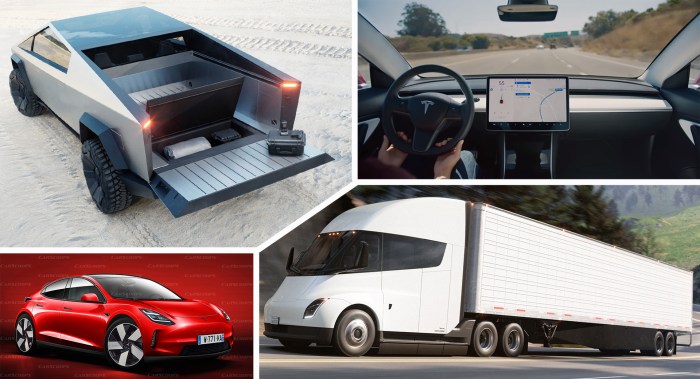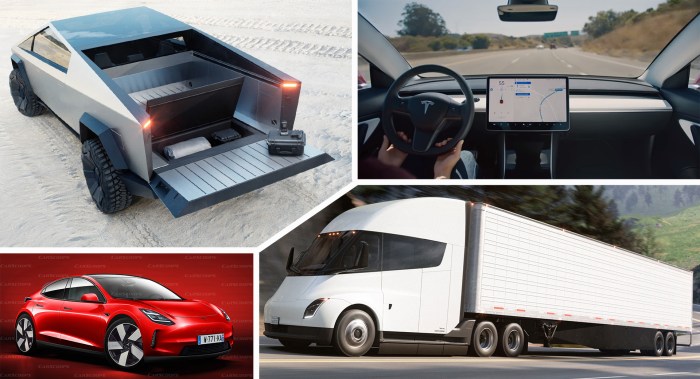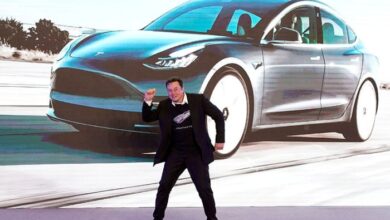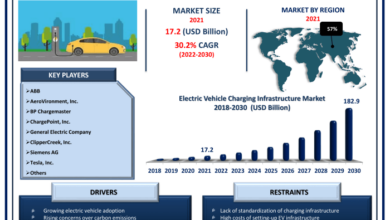
Teslas Global Referral Program: Battling EV Price Wars
Tesla introduces global customer referral program amid rising electric vehicle price competition. In a move that signifies the intensifying battle for market share in the electric vehicle (EV) industry, Tesla has unveiled a global customer referral program. This strategic move comes at a time when EV prices are becoming increasingly competitive, with established automakers launching their own compelling electric offerings.
The program aims to leverage the power of word-of-mouth marketing, offering both referrers and recipients enticing incentives.
The program offers both referrers and recipients significant benefits. Referrers can earn credits towards their next Tesla purchase or Supercharger access, while recipients receive discounts on their new Tesla. This strategic approach demonstrates Tesla’s commitment to fostering a loyal customer base and leveraging their existing community to drive further adoption.
Tesla’s Referral Program

Tesla’s referral program has been a cornerstone of its marketing strategy, leveraging customer advocacy to drive sales and expand its reach. The program has evolved over the years, offering various incentives to both referrers and recipients.
Incentives Offered
The program rewards both the referrer and the recipient with attractive incentives. For referrers, the rewards typically involve credits towards the purchase of a Tesla vehicle or Supercharger credits. The amount of credit varies depending on the specific model referred and the program’s terms.
For recipients, the incentive is usually a discount on the purchase price of their new Tesla vehicle.
Comparison with Other EV Manufacturers
Tesla’s referral program stands out among other EV manufacturers in terms of its generous incentives and simplicity. Many other EV brands also offer referral programs, but these often involve less significant rewards or more complex referral processes. For instance, some manufacturers might offer discounts on accessories or charging services instead of direct purchase credits.
Tesla’s new global customer referral program is a smart move in a competitive EV market. It’s a great way to build brand loyalty, but it also raises questions about how Tesla will handle the data they collect. It’s important to remember that a strong privacy policy is crucial for any company that collects user data, especially one that is rapidly expanding its global reach.
By clearly outlining their data practices, Tesla can gain customer trust and build a sustainable future for their referral program.
Key Features of Tesla’s Referral Program
Tesla’s referral program has a few key features that make it attractive to both customers and the company:
- Global Reach:The program is available in most countries where Tesla operates, allowing customers to refer friends and family worldwide.
- Ease of Use:The referral process is straightforward, with customers simply sharing a unique referral link or code with potential buyers.
- Transparency:The program’s terms and conditions are clearly Artikeld, ensuring both referrers and recipients understand the benefits and requirements.
The Context of Rising Electric Vehicle Price Competition
The electric vehicle (EV) market is experiencing a surge in price competition, driven by factors such as increased production capacity, the entry of new players, and evolving consumer preferences. This dynamic landscape is reshaping the industry, forcing established manufacturers to adjust their pricing strategies and offer more competitive options to remain relevant.
Major Players and Pricing Strategies, Tesla introduces global customer referral program amid rising electric vehicle price competition
The EV market is characterized by a diverse range of players, each with its own pricing strategy.
- Tesla, the pioneer in the EV space, has historically maintained premium pricing for its vehicles, positioning itself as a luxury brand. However, the company has recently introduced more affordable models like the Model 3 and Model Y, aiming to capture a wider market segment.
- General Motors (GM), a traditional automaker, has made significant investments in EV technology and has launched several models, including the Chevrolet Bolt and the Cadillac Lyriq. GM’s pricing strategy focuses on offering competitive prices, particularly for its mass-market vehicles, aiming to appeal to a broad range of consumers.
- Ford, another established automaker, has entered the EV market with models like the Mustang Mach-E and the F-150 Lightning. Ford’s pricing strategy is similar to GM’s, emphasizing value and affordability for its mainstream EV offerings.
- Volkswagen, a global automotive giant, has launched a dedicated EV brand, ID., with a range of models like the ID.4 and ID.5. Volkswagen’s pricing strategy aims to offer competitive prices while leveraging its brand recognition and global reach.
- Hyundaiand Kia, South Korean automakers, have also made significant strides in the EV market, with models like the Hyundai Kona Electric and the Kia EV6. Their pricing strategies are focused on offering value-packed EVs with advanced features and competitive pricing.
Factors Driving Price Competition
Several factors are driving the intense price competition in the EV industry.
Tesla’s new global customer referral program comes at a time of intense competition in the electric vehicle market, where price wars are becoming increasingly common. While Tesla is focused on expanding its reach, the broader economic landscape is also playing a role.
The US dollar is holding steady in the forex market, influenced by expectations of further interest rate hikes by the Fed and growing optimism around the debt ceiling. This stability could potentially benefit Tesla’s global expansion plans, as a stronger dollar generally makes US goods and services more affordable abroad.
- Increased Production Capacity:As EV production scales up globally, the cost of manufacturing components like batteries and electric motors decreases. This reduction in production costs allows manufacturers to offer more competitive pricing. For instance, the global battery production capacity is expected to increase significantly in the coming years, leading to a potential decrease in battery prices.
- Entry of New Players:The EV market is attracting new players, including startups and technology companies, who are bringing innovative products and disruptive pricing strategies. These new entrants are often willing to accept lower margins to gain market share and establish themselves as competitors.
For example, the emergence of Chinese EV manufacturers like BYD and NIO has brought competitive pricing and innovative technologies to the global market.
- Evolving Consumer Preferences:Consumers are increasingly demanding more affordable EV options. As the technology matures and the range of available models expands, consumers have more choices and are more price-sensitive. This shift in consumer preferences is forcing manufacturers to adjust their pricing strategies to remain competitive.
- Government Incentives:Government incentives, such as tax credits and subsidies, play a significant role in driving EV adoption and influencing pricing strategies. These incentives can make EVs more affordable for consumers, but they can also create pressure on manufacturers to offer competitive prices to remain eligible for the incentives.
Potential Benefits of Tesla’s Referral Program: Tesla Introduces Global Customer Referral Program Amid Rising Electric Vehicle Price Competition
Tesla’s referral program could offer significant advantages for the company, extending beyond simply boosting sales. The program’s structure, which incentivizes both the referrer and the referred, has the potential to significantly influence customer behavior and brand perception.
Sales Growth
Tesla’s referral program could contribute to sales growth in several ways. The program offers incentives for both the referrer and the referred, making it mutually beneficial. The referral program incentivizes existing customers to act as brand ambassadors, potentially leading to a significant increase in leads and sales.
Tesla’s new global customer referral program comes at a time when the electric vehicle market is becoming increasingly competitive, with companies like Ford and General Motors making significant investments in their own EV offerings. The move could be a way for Tesla to attract new customers and boost sales, particularly as the latest ISM survey reveals sluggish growth in the US services sector and record low prices paid, indicating a potential shift in consumer spending.
Whether Tesla’s referral program will be enough to drive significant growth remains to be seen, but it’s a strategic move in a rapidly evolving market.
For instance, a successful referral program could lead to a substantial increase in sales volume, particularly in regions where Tesla’s market share is still growing.
Customer Loyalty and Brand Advocacy
The referral program could foster customer loyalty and brand advocacy. By rewarding existing customers for recommending Tesla vehicles, the program acknowledges their satisfaction and encourages them to actively promote the brand. The program encourages existing customers to share their positive experiences with others, fostering a sense of community and loyalty among Tesla owners.
Market Share Impact
Tesla’s referral program could positively impact its market share. By attracting new customers through referrals, Tesla can expand its reach and potentially gain a larger share of the electric vehicle market. The program’s success depends on several factors, including the effectiveness of the incentives offered, the strength of Tesla’s brand reputation, and the overall competitiveness of the electric vehicle market.
Potential Challenges and Considerations
Implementing a global referral program for a company like Tesla presents a unique set of challenges that require careful consideration. This program has the potential to impact various aspects of Tesla’s operations, including customer service and brand perception. It’s essential to navigate these challenges strategically to ensure the program’s success and maintain Tesla’s brand image.
Impact on Customer Service Operations
A global referral program can significantly impact Tesla’s customer service operations. The program could lead to a surge in customer inquiries and requests for assistance.
- Managing increased customer interactions and inquiries could require additional resources, training, and infrastructure for Tesla’s customer service team.
- The program might also necessitate the development of new processes and tools to effectively track referrals, manage incentives, and resolve any issues related to the program.
- It’s crucial to ensure that Tesla’s customer service team is equipped to handle the increased workload and maintain a high level of service quality.
Ethical Considerations
Referral programs in the automotive industry raise ethical considerations that Tesla needs to address.
- Transparency is crucial. Tesla should clearly disclose the program’s terms and conditions to both existing and potential customers, including the incentives offered for referrals and any limitations or restrictions.
- Tesla should ensure that the referral program doesn’t incentivize customers to provide misleading or inaccurate information about their experiences with Tesla vehicles.
- The program should be designed to avoid any potential conflicts of interest or unfair advantages for certain customers or groups.
Future Outlook and Implications
Tesla’s referral program, while initially aimed at boosting sales, could have far-reaching consequences for the electric vehicle (EV) market. Its impact will likely extend beyond Tesla itself, influencing the strategies of other EV manufacturers and potentially reshaping the industry landscape.
Impact on the EV Market
The referral program could significantly impact the EV market by increasing Tesla’s market share and influencing customer preferences. The program’s success could incentivize other EV manufacturers to implement similar programs, leading to a more competitive market.
- Increased Market Share:Tesla’s referral program could lead to a significant increase in sales, especially among new customers who might be swayed by the referral incentives. This could result in a larger market share for Tesla, further solidifying its position as a leading EV manufacturer.
- Influenced Customer Preferences:The program’s focus on word-of-mouth marketing could create a strong network of satisfied Tesla owners who actively recommend the brand to their friends and family. This could influence customer preferences and drive demand for Tesla vehicles, particularly among those seeking reliable and well-regarded EVs.
Influence on Other EV Manufacturers
Tesla’s referral program could inspire other EV manufacturers to implement similar programs, leading to increased competition in the EV market. This could benefit consumers by offering more choices and potentially driving down prices.
- Adoption of Similar Programs:Other EV manufacturers, observing the success of Tesla’s referral program, might adopt similar strategies to boost sales and attract new customers. This could lead to a wave of referral programs across the EV industry, creating a more competitive landscape.
- Increased Competition:The adoption of referral programs by other EV manufacturers could lead to increased competition in the EV market, potentially resulting in lower prices, improved features, and better customer service. This would ultimately benefit consumers by providing them with more choices and value for their money.
Evolution of Tesla’s Referral Program
Tesla’s referral program could evolve over time, potentially incorporating new features or incentives to maintain its effectiveness and attract new customers.
- Expanding Referral Incentives:Tesla might introduce new incentives, such as discounts on accessories, extended warranties, or priority access to new features, to further incentivize referrals and attract a wider range of customers.
- Integration with Social Media:The program could be integrated with social media platforms to enhance its reach and encourage viral marketing. This could involve allowing users to share their referral codes on social media, or creating dedicated referral campaigns on social media platforms.
- Data-Driven Optimization:Tesla could leverage data analytics to optimize the referral program’s effectiveness. This might involve analyzing referral patterns, identifying successful strategies, and adjusting the program based on insights gathered from data.






